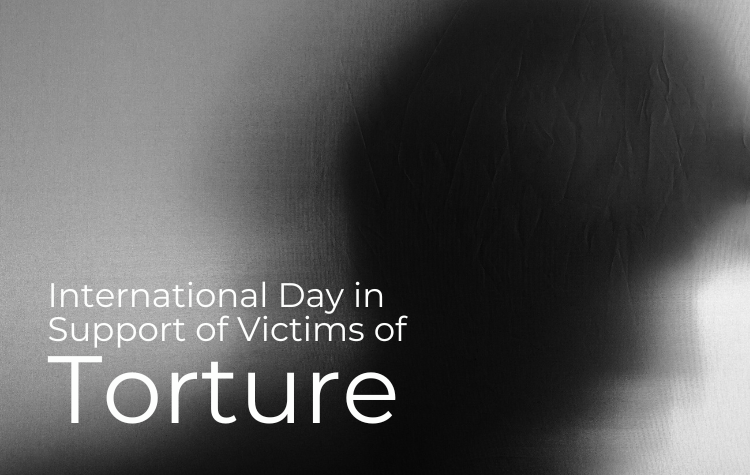Today, 26th June 2023, we are commemorating the 25th International Day in Support of Victims of Torture. On this occasion we want to draw the attention of the global citizens to the exceptionally grim picture of torture in India and call for effective programs to counter the situation.
As early as 1981, the Supreme Court of India has said “…nothing is more cowardly and unconscionable than a person in police custody being beaten up and nothing inflicts deeper wound on our constitutional culture than a state official running berserk regardless of human rights” [Kishore Singh V. State of Rajasthan (AIR 1981 SC 625)]. As early as 1997, the UN Human Rights Committee has expressed its concern about the widespread use of torture by the law enforcement agencies in India. (CCPR/C/79/Add.81). Similar concerns were expressed by the Committee on Elimination of Racial Discrimination (CERD/C/IND/CO/19) in 2007 and the Committee on Economic Social and Cultural Rights (E/C.12/IND/CO/5) in 2008.
In the book of criminal laws in India, ‘torture’ is not defined anywhere. In India there is no special anti-torture laws which can bind the arms of the perpetrators. The persistence of inhuman treatment by the police and state officials makes it apparent that India is determined to protect violence by the police. India is one of the remaining five countries that has yet to ratify the 1987 United Nations Convention against Torture and Other Cruel, Inhuman or Degrading Treatment or Punishment (UNCAT).
On this very day in the year of 1987, the UNCAT was introduced with the goal of the eradication of this inhuman act. Data say that this atrocious act is still very much prevalent in India. According to NCRB report in 2021, there were 6 cases of custodial death due to torture of police in the custody. It is needless to say that this government data do not reflect the true picture. Apart from that, only the torture happening in custody can be documented. In India we can find instances of torture outside the custody, too. In India, apart from torture, extra judicial execution, rape, violence against Muslims, Dalits and other marginalized sections are also very much prevalent. These are very much interlinked with the phenomena of torture. As stated by minister of State, Ministry of Home Affairs, Mr. Nityananda Rai, there were 655 cases of extra-judicial executions in India between 2017 and 2022.
It is noteworthy that the country has about 178 Human Rights Institutions. But, we have noticed that most of them are almost inactive when it comes to actively fighting for the justice of the victims. And it is also to be noted that, in many cases, bureaucrats and persons with records of erstwhile perpetration of human rights violations are heading these institutions.
Between October 2018 and May 2023, MASUM has documented a total of 116 cases of torture by State forces. We have to note that this record only reflects the situation in 4 Indo-Bangladesh border districts in West Bengal. Thus, we can safely assume that the country-wide picture will be grimmer than the official record. Besides, during the medico-legal investigation of cases of torture, the Istanbul protocol, Minnesota Protocol and other international instruments are not followed.
The cause of a deeper concern is that the government forces are committing these atrocities with a blanket of impunity due to the ‘Sanction regime.’ Looking at this grim picture, we must reiterate a few demands on this anti-torture day:
- The UNCAT must be ratified by the government of India with immediate effect. Domestic legislation to counter torture must be introduced in India with immediate effect.
- As a deterrent, the government forces must be trained and sensitized accordingly in order to stop the use of torture.
- The medico-legal experts must be trained about the Istanbul Protocol, the Minnesota Protocol and other international instruments that deal with the cases effectively.
- The systematic impunity must be stopped at once and the perpetrators of torture should be brought under justice in the open court of law.
On the occasion of the International Day in Support of Victims of Torture, in cooperation with FORUM-ASIA, MASUM reiterates its call to the Indian government to join the international community in getting closer to the vision for a world without torture.
Stop torture NOW!
Signed by:
1. Banglar Manabadhikar Suraksha Mancha (MASUM)
2. Asian Forum for Human Rights and Development (FORUM-Asia)
3. Asian Alliance Against Torture (A3T)
4. Bytes for All, Pakistan (B4A)
5. Right to Life, Human Rights Centere, Sri Lanka
6. Families of the Disappeared, Sri Lanka
**
For the PDF version of this statement click here



